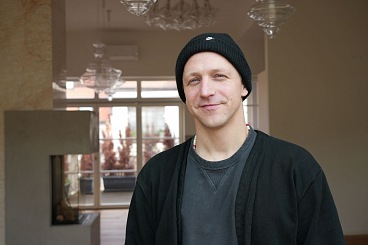Fast Confession - psychologist Laura Janáčková: The second wave of the coronavirus brought mistresses to my office
The psychologist Laura Janáčková is a highly respected expert with many degrees and extensive experience in the field of interpersonal relationships and communication. In addition to sexology, she also deals with the psychology of oncology patients. Let's just say she's very busy and she manages to also be a wife and a mother on top of it. One would say that it must be impossible to handle, but if you sit down in her office and listen to her for a while, you will understand that she can do all that and more. Energy pours out of her even after a hard day of work. In the interview for LP-Life.com, we could have discussed even if the chicken or the egg came first, but that would have been material for a book bestseller.
Has coronavirus affected your work?
I treat oncological and chronically ill patients at the General University Hospital in Prague. During the pandemic, some of them are afraid to visit the hospital. They limit their social contact, and this of course has a negative effect on their mental health. They are more anxious, full of worries and can hardly find even small everyday joys. In my office, I often encounter sadness, feelings of loneliness, loss of hope and depression. More than ever, I am contacted by families of patients who are worried about their loved ones, they are also afraid of social and financial uncertainty.
The protective measures in connection with the pandemic reflect significantly also in my private practice, where I deal with relationship and sexual problems of my clients. Already in the first wave of the pandemic, couples who didn't care well enough for their relationship developed communication problems. Relationship crises also culminated due to unfulfilled expectations of other possible partners (mistresses). Furthermore, the first surveys from China and the USA predict an increase in divorces. In the second wave of the pandemic, I more often encounter problems in the area of sexuality with my clients, I deal with dysfunctions and differences in sexual appetites, often due to chronic stress and broken relationships.
Which of the trio "husband, wife, mistress" usually has the biggest problem?
I think everyone has a problem here. In general, the situation developed in such a way that, as a result of the protective measures, men spent most of their time with their families, it was difficult to also take care of another relationship, which was suffering as a result. Mistresses became more aware of their position and their role as a "mistresse" and doubts about unfulfilled promises and confessions kept growing. In addition, the separation, loneliness, and fear started to affect them. At this point, one can re-evaluate one's life and their priorities. Stress then often leads to hasty decisions and actions. Thanks to them, a partnership crisis arises on all sides. It is sensible for those involved to deal with the situation with a professional and to avoid hasty decisions that they could later regret or hurt someone they least want to.
I can't imagine a woman going to a professional to ask how to get a man with family and children...
She certainly won't come to me with that question, she has the answer to that one figured out a long time ago. (smiles)
So what does she expect?
She might come because she loves a person who keeps telling her things that may not be true. She loves a man who may be unhappy in his current relationship, he keeps promising her a nice life and she is waiting for it. She has given him years of her life, she wants to start a family with him, and now comes the time when fears begin to creep into her mind, as to whether her expectations would ever come true. Doubts are reflected in her trust and, consequently, in her behavior. She may even start thinking about the family and children of the man she loves, she doesn't want to hurt them and take responsibility for the man's decision, but on the other hand, her love is selfish. However, men also come to my office, to get advice on how to least harm the children, how to break it up, how to tell them, etc. My clients are also the wives of the infidels, who, despite great internal pain and humiliation, want to keep their family tigether, so that the children would have a father and they'd have a husband.
There are an awful lot of women whose biological clock is already ticking, they want to start a family and have invested several years of their life into someone. What advice would you give these mistresses? Don't they act according to their emotions, then, anyway?
The task of an experienced psychologist is to help a person make their own decisions and take responsibility for their decisions. It's necessary to reveal the paths and their pitfalls, to gain time when there is a threat of a hasty solely emotional decision, time for an overview of the situation and its impact.
You yourself are married for the third time. How well do you cope with your profession? You have two offices where you deal with a lot of emotional cases.
Precisely because I already have some experience in life, I know that human, relationship and professional responsibility is the key to wise decisions. In my office, I try to understand situations that are sometimes difficult to comprehend, such as when a husband leaves his sick wife battling cancer because he can't look at her suffering anymore. Or a woman who's losing the fight against this insidious disease is denied contact with her little daughter so her daughter won't be traumatized and so on. However, I also meet men who transfer their property before their divorce so that they don't have to share it with the wife and children. With women who use their children as weapons against the fathers and the like. However difficult to understand some situations are, they always have two sides and may not be as black and white as they seem at first glance. And sometimes they even have their solutions. After all, only in difficult situations will the character of a person, their real human value, be tested, and this is also important for evaluating if one wants to spend their life with them or not.
And what about your partner, have you evaluated him already?
Of course, through repeated experiments, one learns. (laughs)
I have been examining my husband daily for more than a decade. His previous wife also died of cancer, so he appreciates my work and is able to understand it. It's not difficult for him to take me to the homes of my sick patients, in his free time, when they no longer have the strength to come to my office. He helps me bear the weight of sadness, suffering and pain I encounter at work. And the best part is that despite our age, he can still pleasantly surprise and please me. Thanks to him, I have the opportunity to experience family happiness every day.
You write books for women. Are they are about the path to marital happiness?
I write books for people who are chronically ill (cancer, diabetes, digestive and intestinal problems, autoimmune diseases, skin, lung and other long-term illnesses). In them, I deal with specific procedures and practical recommendations on how to handle a difficult situation, how to fight anxiety, fear, pain, etc. Of course, I also deal with relationships and sex, so they are definitely about the path to happiness. But you are probably asking about my book bestsellers dedicated to women (How to Milk a Billy Goat, Men Want Bad Girls, From Unconsciousness to Self-cConfidence, How to Understand Men Without Words, etc.). These also include instructions and specific procedures tested in practice and substantiated knowledge of evolutionary sexology, how to succeed in relationships and find personal happiness. After all, it has long been known that relationships are what make people happier and healthier, from birth to old age. It's therefore necessary to take care of them and realize their value.
Laura, I'd like to keep talking to you but we'll have to leave that for another interview. Thank you very much for this one.











